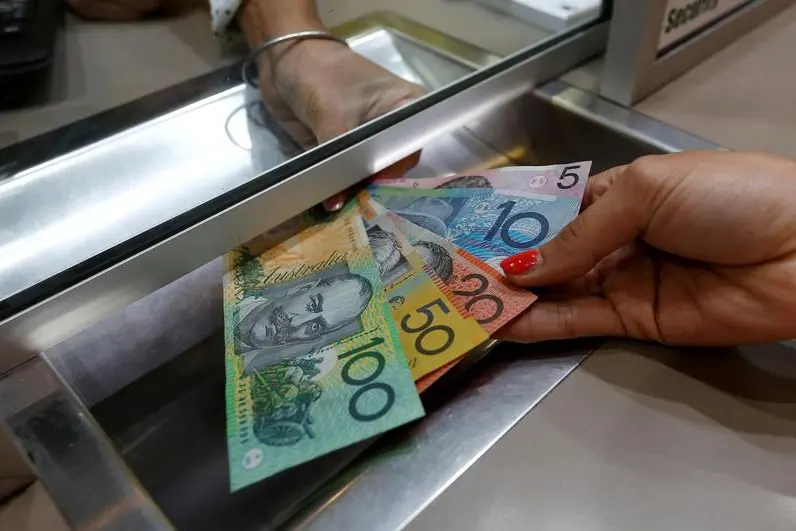PHOTO
The Australian and New Zealand dollars rebounded against a retreating yen on Friday after the Bank of Japan (BOJ), headed at a policy meeting for the last time by outgoing Governor Haruhiko Kuroda, stuck to its super-easy economic stimulus.
The Aussie hit 89.99 yen after easing to its lowest in seven weeks at 89.22 yen earlier in the day amid bets of a surprise tweak to the BOJ's bond yield curve control, which had sent U.S. dollar/yen volatility gauges spiking.
The kiwi dollar jumped 0.5% to 83.43 yen having also tumbled 1% overnight to as far as 82.99.
The BOJ maintained ultra-low interest rates on Friday and held off making changes to its yield control policy, leaving options open ahead of a leadership transition in April.
The yen was last down about 0.3% at 136.55 per U.S. dollar after a knee-jerk plunge of as much as 0.62%.
With all the action in the yen, the Aussie was 0.3% lower against the U.S. dollar at $0.6574, its lowest since early November and on course for a weekly plunge of 2.9%.
A break below $0.6545 would be bearish and intensify a recent downward trend.
The kiwi dollar was flat at $0.6099 versus its U.S. counterpart, not too far away from a four-month low of $0.6083 hit earlier this week. At present, it is down 2% for the week.
Overnight, surprisingly high U.S. jobless claims offered a weak prelude for broader non-farm payrolls data due later on Friday, putting some pressure on recent dollar gains.
The jobs figures are a crucial barometer of the health of the labour market and direction of interest rates after Federal Reserve Chair Jerome Powell earlier this week said the bank could raise rates further and faster if data showed such action was needed to manage inflation.
"A strong U.S. payroll report tonight risks pushing AUD/USD down towards 0.64," said currency strategist Carol Kong at Commonwealth Bank of Australia.
"A payroll gain that is on or above consensus will likely cement market expectations for a 50bp increase later this month and push the USD up sharply."
Australian government bonds had a stellar week after the Reserve Bank of Australia signalled a likely pause in rate increases next month. Three-year yields fell 24 basis points this week to 3.354% and 10-year yields plunged 28 bps to 3.629%. (Reporting by Stella Qiu; Editing by Christopher Cushing)





















